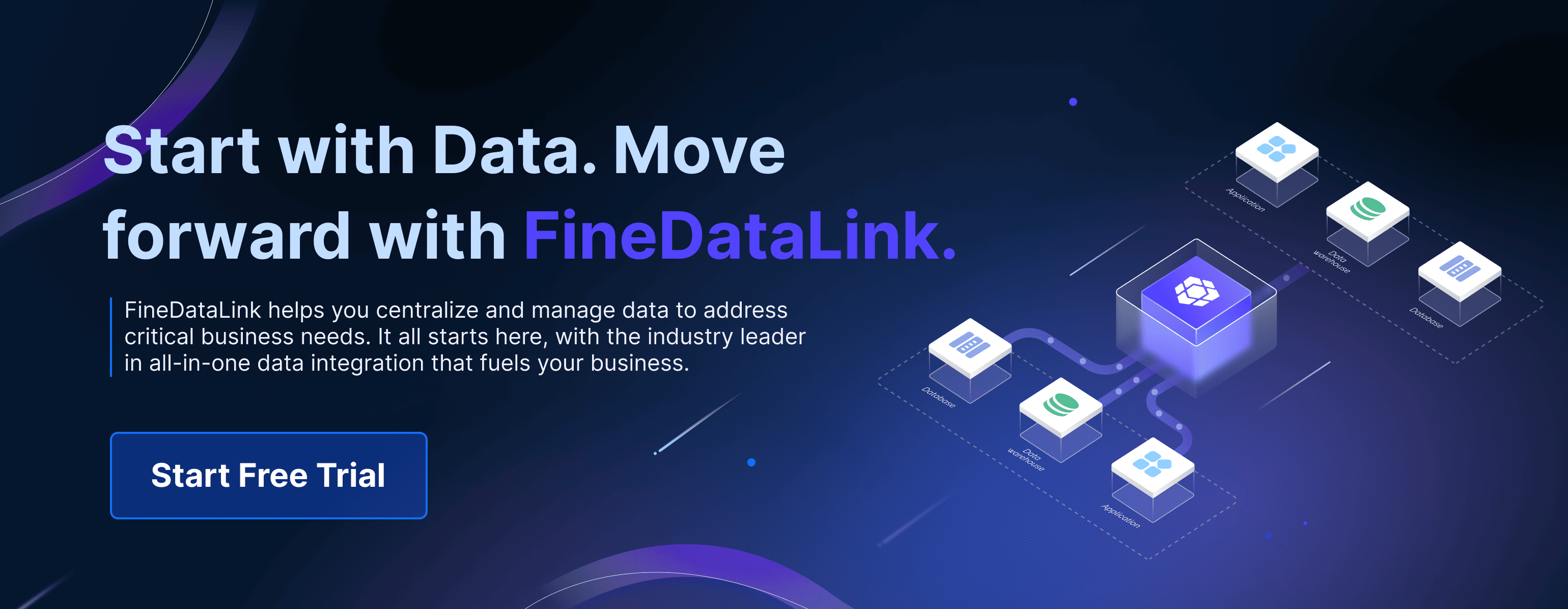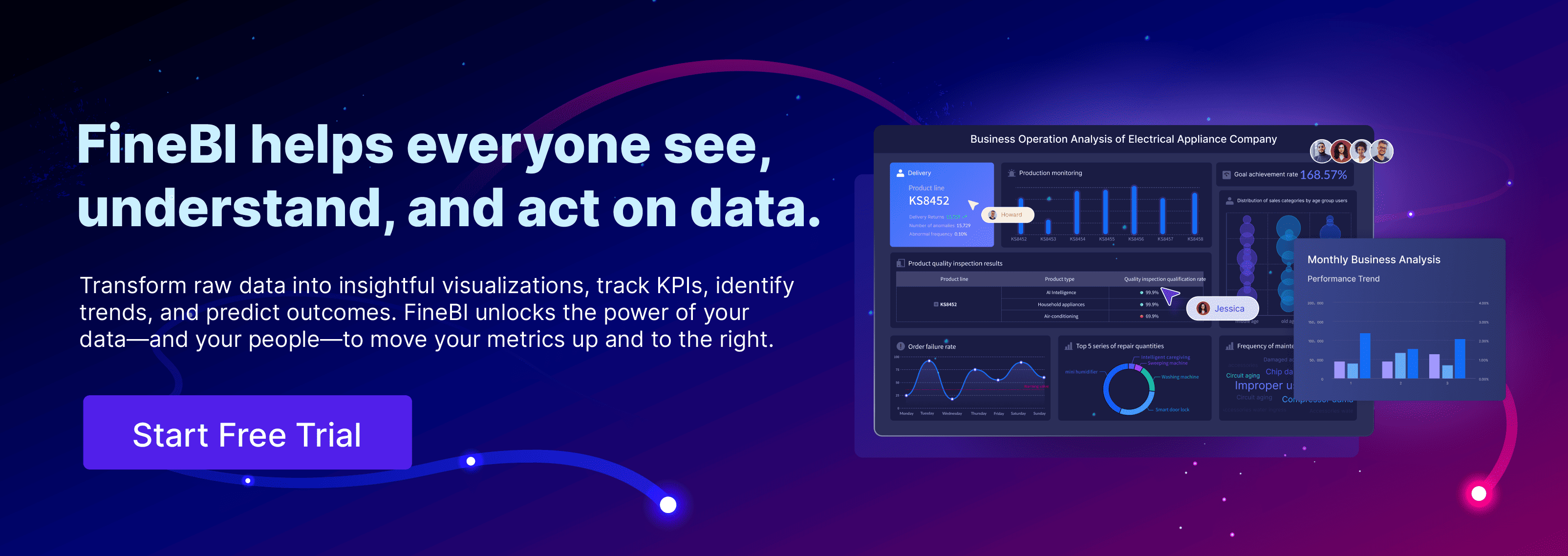

Data Management as a Service
Sean, Industry Editor
Nov 07, 2024
Data Management as a Service (DMaaS) revolutionizes how you handle data in today's digital age. It offers a cloud-based solution that simplifies managing and protecting enterprise data. By centralizing disparate data sources, DMaaS enhances efficiency and security. You can focus on extracting value from your data while reducing operational costs. The market for DMaaS is growing rapidly, driven by its cost-effectiveness and advanced capabilities. Solutions like FineDataLink and FineBI empower organizations to streamline data integration and analysis, making DMaaS an attractive option for businesses aiming to stay competitive.
What is Data Management as a Service (DMaaS)?
Definition of Data Management as a Service
Data Management as a Service (DMaaS) represents a transformative approach to handling data in the digital era. It leverages cloud-based services to provide a comprehensive suite of data management functionalities. By outsourcing data management tasks to a third-party provider, you can focus on core business activities while ensuring efficient data handling. DMaaS encompasses various capabilities, including data integration, storage, transformation, governance, and analytics, all delivered over the internet. This model eliminates the need for on-premises infrastructure, offering flexibility and scalability for managing data efficiently.
Key Characteristics of Data Management as a Service
DMaaS stands out due to its unique characteristics that cater to modern data management needs:
- Centralized Platform: DMaaS provides a centralized platform for storing, organizing, and analyzing data. This centralization simplifies data management by unifying disparate data sources, making it easier for you to access and manage your data assets.
- Scalability and Flexibility: The cloud-based nature of DMaaS ensures that you can scale your data management operations as your needs evolve. Whether dealing with structured, semi-structured, or unstructured data, DMaaS offers scalable storage solutions to accommodate growing data volumes.
- Advanced Analytics: DMaaS incorporates powerful data processing engines and analytics tools. These tools enable you to derive actionable insights from your data, utilizing both batch and stream processing capabilities for real-time analytics.
- Automation and Efficiency: By automating routine data management tasks such as backups and updates, DMaaS frees up your time for other business operations. This automation enhances efficiency and ensures data quality and consistency.
- Enhanced Security: With DMaaS, you benefit from enhanced data security measures. The service providers implement robust security protocols to protect your data, ensuring compliance with industry standards.
- Cost-Effectiveness: Outsourcing data management to a DMaaS provider can lead to significant cost savings. You avoid the expenses associated with maintaining on-premises infrastructure and benefit from a pay-as-you-go pricing model.
In essence, Data Management as a Service offers a proactive approach to data optimization, allowing you to focus on extracting value from your data while reducing operational complexities.
How Data Management as a Service Works
Data Management as a Service (DMaaS) transforms how you manage data by leveraging cloud-based solutions. This approach allows you to outsource data management tasks to specialized providers, freeing up your resources and enabling you to focus on core business activities. Understanding the infrastructure and business model of DMaaS is crucial for maximizing its benefits.
Infrastructure of Data Management as a Service
The infrastructure of DMaaS revolves around cloud technology, which provides a centralized platform for data integration, storage, and analytics. This setup eliminates the need for on-premises infrastructure, offering you flexibility and scalability. Here’s how it works:
- Centralized Storage: DMaaS unifies various data sources in a central location. This centralization simplifies data management, making it easier for you to access and manage your data assets efficiently.
- Cloud-Based Solutions: By utilizing cloud services, DMaaS ensures that you can scale your operations as your data needs grow. Whether dealing with structured or unstructured data, the cloud provides scalable storage solutions.
- Advanced Security Measures: Service providers implement robust security protocols to protect your data. This ensures compliance with industry standards and enhances data security.
- Automation Tools: DMaaS automates routine tasks like backups and updates, increasing efficiency and ensuring data quality and consistency.
This infrastructure allows you to offload the complexities of managing data infrastructure, focusing instead on leveraging data for insights and decision-making.
Business Model of Data Management as a Service
The business model of DMaaS is designed to provide cost-effective and efficient data management solutions. Here’s how it benefits you:
- Outsourcing Expertise: By outsourcing data management to specialized providers, you gain access to expert guidance and support. This allows you to focus on your core competencies without interruption.
- Pay-as-You-Go Pricing: DMaaS offers a flexible pricing model where you pay only for the services you use. This model reduces operational costs and makes enterprise-grade data capabilities accessible to small and medium-sized businesses.
- Focus on Core Business: With DMaaS handling your data management tasks, you can concentrate on extracting value from your data. This focus helps you make informed decisions and drive business outcomes.
- Competitive Advantage: By leveraging DMaaS, you stay competitive in the rapidly evolving business landscape. The service provides a comprehensive solution for handling, manipulating, and deriving insights from your data.
Benefits of Data Management as a Service

Data Management as a Service (DMaaS) offers several compelling benefits that can transform how you manage your data. By leveraging cloud-based solutions, DMaaS provides a more agile, cost-effective, and feature-rich approach to data management.
Cost Reduction
- Lower Capital Expenditure: DMaaS significantly reduces the need for on-premises infrastructure. You avoid the high upfront costs associated with purchasing and maintaining hardware. Instead, you pay only for the services you use, which can lead to substantial savings.
- Improved Operational Efficiency: By outsourcing data management tasks, you can focus on core business activities. This shift allows you to allocate resources more effectively, reducing operational costs and enhancing productivity.
- Pay-as-You-Go Model: The flexible pricing structure of DMaaS ensures that you only pay for what you need. This model helps you manage your budget more efficiently, avoiding unnecessary expenses.
Scalability
- Unparalleled Scalability: DMaaS offers the ability to scale your data management operations effortlessly. As your data needs grow, you can easily adjust your storage and processing capabilities without the constraints of physical infrastructure.
- Elasticity: The cloud-based nature of DMaaS provides elasticity, allowing you to handle varying data volumes with ease. Whether you experience a sudden increase in data or need to downscale, DMaaS adapts to your requirements seamlessly.
- Global Accessibility: With DMaaS, you can access your data from anywhere in the world. This global reach ensures that your team can collaborate effectively, regardless of their location.
Enhanced Security
- Robust Security Measures: DMaaS providers implement advanced security protocols to protect your data. These measures include encryption, access controls, and regular security audits, ensuring that your data remains secure.
- Compliance with Industry Standards: By choosing DMaaS, you benefit from compliance with industry standards and regulations. This compliance provides peace of mind, knowing that your data management practices meet the necessary legal requirements.
- Greater Data Visibility and Control: DMaaS enhances your ability to monitor and control your data. You gain insights into data usage and access patterns, allowing you to make informed decisions about data governance and security.
Ease of Use
Data Management as a Service (DMaaS) simplifies your data management tasks, making it user-friendly and accessible. This service model offers several features that enhance ease of use:
- Intuitive Interfaces: DMaaS platforms often come with user-friendly interfaces. These interfaces allow you to manage data without needing extensive technical knowledge. You can easily navigate through the platform, perform data operations, and access analytics tools.
- Automated Processes: Automation is a key feature of DMaaS. Routine tasks like data backups, updates, and data synchronization happen automatically. This automation reduces manual intervention, saving you time and minimizing errors.
- Seamless Integration: DMaaS supports integration with various data sources and systems. You can connect your existing data infrastructure with the DMaaS platform effortlessly. This seamless integration ensures that you can manage data from multiple sources in one place.
- Scalability and Flexibility: The cloud-based nature of DMaaS provides scalability. You can adjust your data management capabilities as your needs change. Whether you need more storage or processing power, DMaaS adapts to your requirements.
- Comprehensive Support: DMaaS providers offer comprehensive support services. You have access to expert guidance and assistance whenever needed. This support ensures that you can resolve any issues quickly and efficiently.
"DMaaS provides a more agile, cost-effective, and feature-rich solution, offering flexibility, agility, and global accessibility."
Comparison with Traditional Data Management Solutions
Differences in Infrastructure
When you compare Data Management as a Service (DMaaS) with traditional data management solutions, the differences in infrastructure become apparent. Traditional systems often rely on on-premises hardware and software. You need to invest in physical servers, storage devices, and networking equipment. This setup requires significant capital expenditure and ongoing maintenance.
In contrast, DMaaS leverages cloud-based infrastructure. You don't need to worry about purchasing or maintaining hardware. The service provider manages the infrastructure, allowing you to focus on your core business activities. This cloud-based approach offers flexibility and scalability. You can easily adjust your data management capabilities as your needs change.
Traditional solutions often involve complex integration processes. You might need to manually connect different data sources and systems. DMaaS simplifies this process. It provides pre-built connectors, APIs, and data pipelines. These tools enable seamless integration of data from disparate sources. You can create a single source of truth for analysis and reporting.
Advantages of DMaaS over Traditional Solutions
DMaaS offers several advantages over traditional data management solutions. These benefits can transform how you manage your data and drive business success.
- Cost-Effectiveness: DMaaS reduces operational costs. You avoid the expenses associated with maintaining on-premises infrastructure. The pay-as-you-go pricing model ensures that you only pay for the services you use. This approach makes enterprise-grade data capabilities accessible to businesses of all sizes.
- Scalability and Flexibility: With DMaaS, you can scale your data management operations effortlessly. The cloud-based nature of the service allows you to handle varying data volumes with ease. Whether you experience a sudden increase in data or need to downscale, DMaaS adapts to your requirements seamlessly.
- Enhanced Data Quality: DMaaS provides tools and frameworks to streamline data ingestion, transformation, and governance processes. This streamlined approach reduces time-to-insight, minimizes errors, and enhances data quality. You can derive maximum value from your data assets.
- Focus on Core Business: By outsourcing data management tasks to specialized providers, you gain access to expert guidance and support. This allows you to concentrate on extracting value from your data. You can make informed decisions and drive business outcomes without interruption.
- Agility and Innovation: DMaaS enables you to stay agile in a rapidly evolving business landscape. The service provides a comprehensive solution for handling, manipulating, and deriving insights from your data. You can quickly adapt to changing market conditions and seize new opportunities.
"DMaaS empowers organizations to derive maximum value from their data assets, reducing operational costs and enhancing agility."
Use Cases of Data Management as a Service
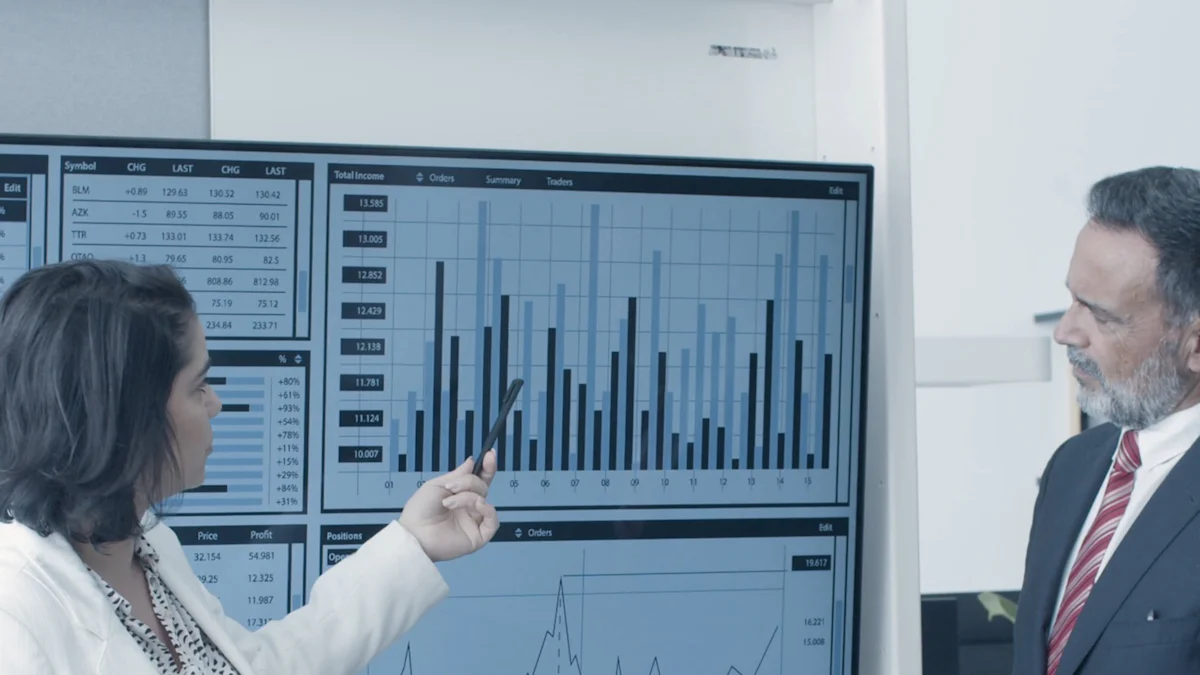
Industry-Specific Applications
Data Management as a Service (DMaaS) finds applications across various industries, each benefiting from its unique capabilities. In the healthcare sector, DMaaS helps manage patient records, ensuring data security and compliance with regulations like HIPAA. You can streamline data integration from multiple sources, such as electronic health records and lab results, enhancing patient care.
In finance, DMaaS supports real-time data analysis for risk management and fraud detection. By centralizing data from different financial systems, you gain insights into market trends and customer behavior. This capability allows you to make informed investment decisions and improve customer service.
Retail businesses use DMaaS to manage inventory and customer data. By analyzing sales patterns and customer preferences, you can optimize stock levels and personalize marketing strategies. This approach enhances customer satisfaction and boosts sales.
Manufacturing companies leverage DMaaS for supply chain optimization. By integrating data from suppliers, production lines, and distribution channels, you can improve efficiency and reduce costs. This integration ensures timely delivery of products and minimizes disruptions.
Real-World Examples
Several organizations have successfully implemented DMaaS to transform their data management practices. A leading healthcare provider adopted DMaaS to integrate patient data from various sources. This integration improved patient outcomes by providing doctors with comprehensive medical histories and real-time updates.
A global financial institution used DMaaS to enhance its risk management processes. By centralizing data from different departments, the institution gained a holistic view of its operations. This view enabled it to identify potential risks and implement effective mitigation strategies.
In the retail sector, a major chain utilized DMaaS to analyze customer data and optimize inventory management. By understanding customer preferences, the chain tailored its product offerings and improved customer satisfaction.
A manufacturing giant implemented DMaaS to streamline its supply chain operations. By integrating data from suppliers and production facilities, the company reduced lead times and improved product quality.
"DMaaS empowers organizations across industries to optimize their data management practices, enhancing efficiency and driving business success."
These examples highlight the versatility and effectiveness of DMaaS in addressing industry-specific challenges. By adopting DMaaS, you can unlock the full potential of your data and gain a competitive edge in your industry.
Main Providers of Data Management as a Service
Overview of Leading DMaaS Providers
When exploring Data Management as a Service (DMaaS), you will find several leading providers that offer robust solutions. These companies have established themselves as pioneers in the field, delivering comprehensive data management services that cater to various industry needs.
- Coca-Cola: This global beverage giant utilizes DMaaS to streamline its data management processes. By centralizing data storage and automating routine tasks, Coca-Cola gains valuable insights that drive decision-making and enhance operational efficiency.
- General Electric (GE): GE leverages DMaaS to manage vast amounts of data generated across its diverse business units. The service enables real-time data processing, allowing GE to optimize its operations and identify growth opportunities.
- Nestle: As a leader in the food and beverage industry, Nestle employs DMaaS to integrate data from multiple sources. This integration facilitates advanced analytics, helping the company make informed decisions and improve product offerings.
- BMW: The automotive giant uses DMaaS to enhance its manufacturing processes. By analyzing large datasets with real-time capabilities, BMW can monitor production lines, ensure quality control, and innovate new vehicle features.
These examples demonstrate the versatility and effectiveness of DMaaS in driving growth and improving decision-making across various industries. By adopting DMaaS, you can unlock the full potential of your data and gain a competitive edge.
Criteria for Choosing a DMaaS Provider
Selecting the right DMaaS provider is crucial for maximizing the benefits of data management services. Here are some key criteria to consider when making your choice:
- Scalability: Ensure that the provider offers scalable solutions that can grow with your business. As your data needs evolve, the provider should accommodate increased storage and processing requirements.
- Security: Data security is paramount. Choose a provider that implements robust security measures, including encryption, access controls, and regular audits, to protect your data.
- Integration Capabilities: Look for a provider that supports seamless integration capabilities with your existing systems. The ability to connect various data sources and platforms is essential for creating a unified data management environment.
- Cost-Effectiveness: Evaluate the pricing model of the provider. A pay-as-you-go structure can offer flexibility and cost savings, ensuring you only pay for the services you use.
- Support and Expertise: Consider the level of support and expertise offered by the provider. Access to knowledgeable professionals can help you navigate challenges and optimize your data management practices.
By carefully assessing these criteria, you can select a DMaaS provider that aligns with your business goals and enhances your data management capabilities.
FanRuan's Role in Data Management as a Service
FanRuan plays a pivotal role in the Data Management as a Service (DMaaS) landscape by offering innovative solutions that streamline data integration and analysis. With products like FineDataLink and FineBI, FanRuan empowers organizations to harness the full potential of their data assets.
FineDataLink's Contribution to DMaaS
FineDataLink stands out as a comprehensive data integration platform within the DMaaS framework. It simplifies complex data integration tasks, enabling you to manage data from multiple sources efficiently. FineDataLink offers real-time data synchronization, ensuring that your data remains up-to-date across various systems. This capability is crucial for businesses that require timely insights to make informed decisions.
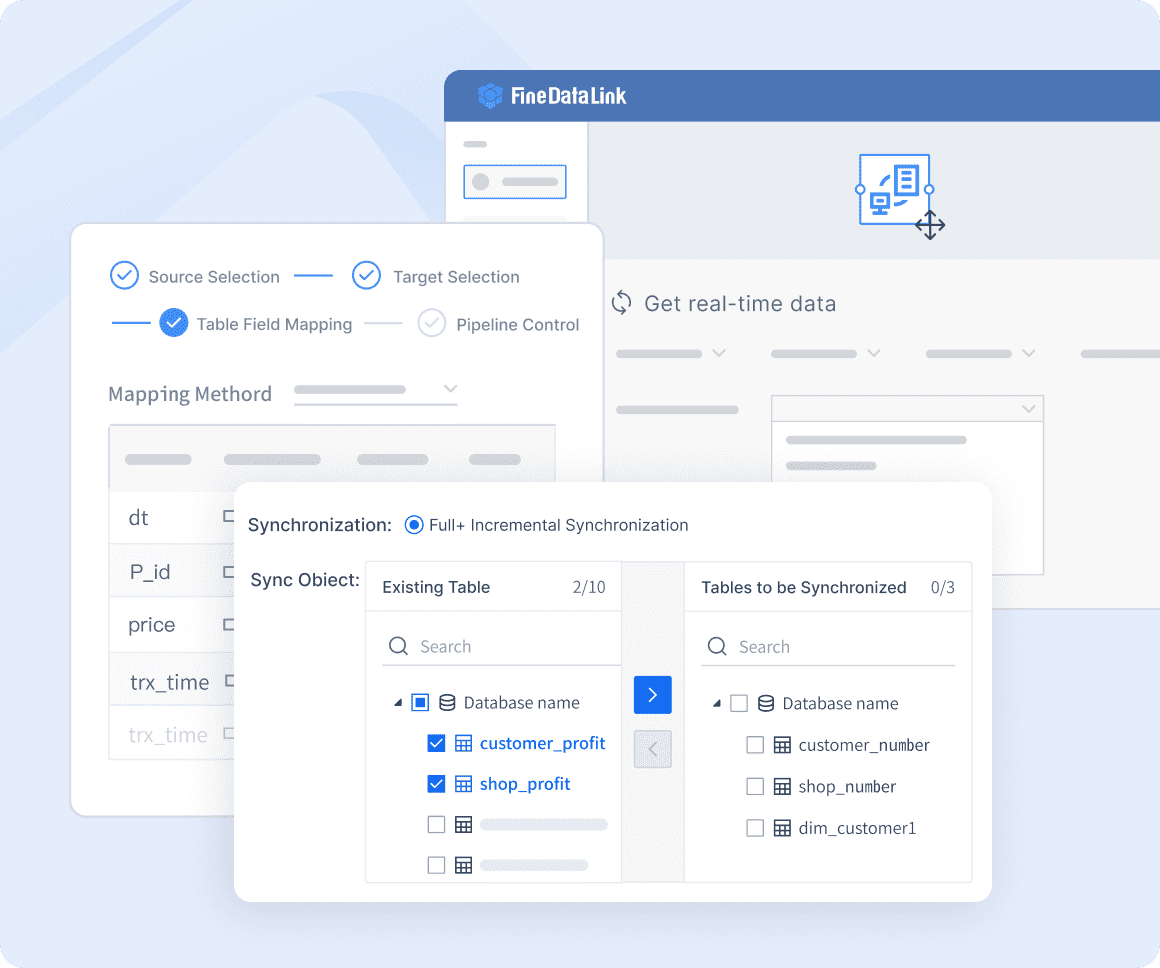
- Real-Time Synchronization: FineDataLink excels in synchronizing data across multiple tables with minimal latency. This feature allows you to build real-time data warehouses, enhancing your ability to respond to changing business conditions swiftly.
- Low-Code Platform: The platform's low-code approach makes it accessible to users with varying technical expertise. You can leverage its drag-and-drop functionality to streamline data integration processes, reducing the need for extensive coding.
- Scalability and Connectivity: FineDataLink supports over 100 common data sources, providing seamless connectivity and scalability. Whether you deal with legacy systems or modern SaaS applications, FineDataLink ensures smooth data flow across your organization.
- Automation and Efficiency: By automating routine data management tasks, FineDataLink frees up your resources for strategic initiatives. This automation enhances operational efficiency and minimizes errors, allowing you to focus on deriving value from your data.
"FineDataLink provides a modern and scalable data integration solution, addressing the challenges of data integration, data quality, and data analytics through its core functions."
FineBI's Role in Data Management
FineBI complements FineDataLink by offering robust business intelligence and analytics capabilities. It empowers you to transform raw data into actionable insights, facilitating informed decision-making across your organization.
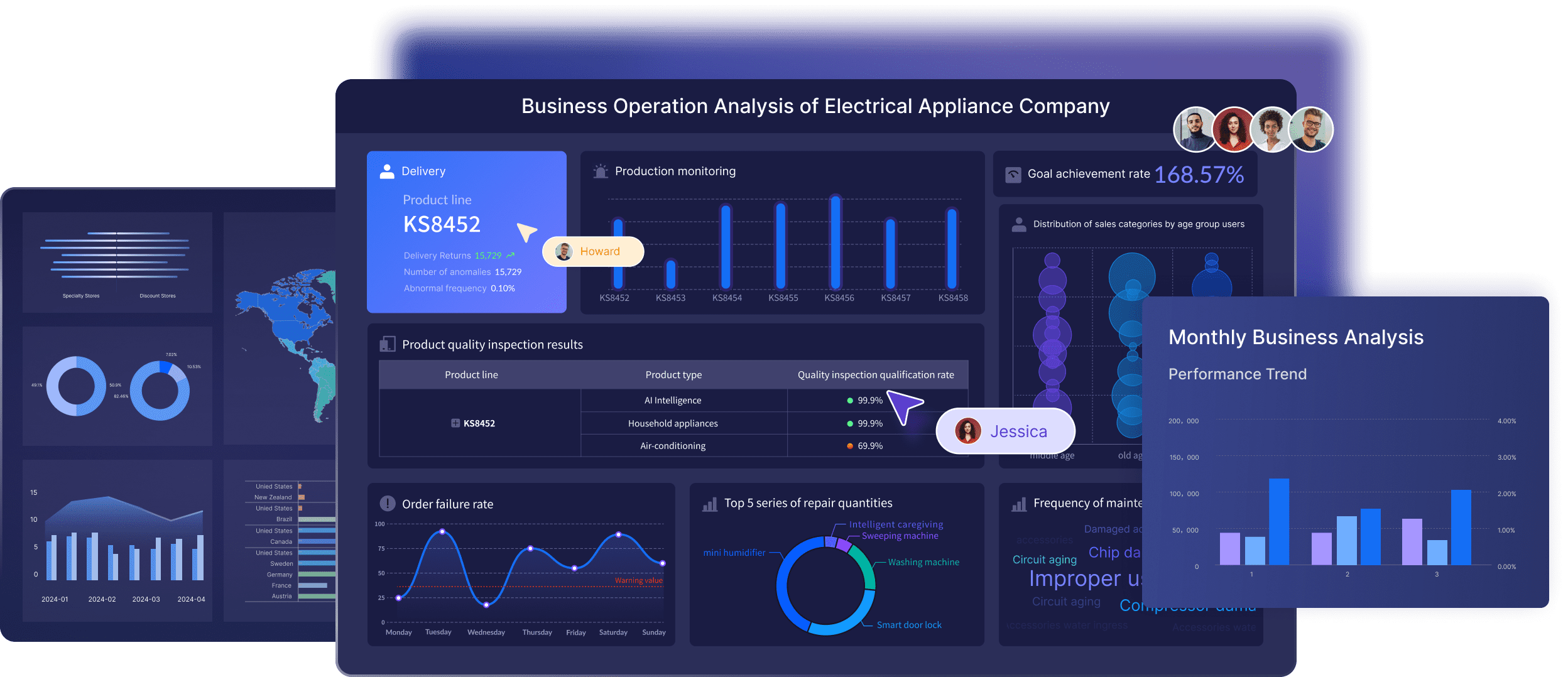
- Self-Service Analytics: FineBI enables you to perform self-service analytics, allowing business users and data analysts to explore data independently. This capability democratizes data access, fostering a data-driven culture within your organization.
- Advanced Visualization: With FineBI, you can create insightful visualizations that track key performance indicators (KPIs), identify trends, and predict future outcomes. These visualizations enhance your ability to communicate complex data insights effectively.
- Real-Time Analysis: FineBI supports real-time data analysis, ensuring that you have access to the latest information when making critical decisions. This feature boosts productivity and enhances your organization's agility.
- Flexible Data Processing: FineBI offers flexible ETL and ELT data processing modes, enabling you to preprocess data according to your specific needs. This flexibility ensures high data quality and consistency across various systems.
"FineBI transforms raw data into insightful visualizations, empowering organizations to improve decision-making and business performance."
By integrating FineDataLink and FineBI into your data management strategy, you can unlock the full potential of DMaaS. These solutions provide a comprehensive approach to data integration and analysis, helping you stay competitive in today's data-driven world.
Future of Data Management as a Service
Emerging Trends
Data Management as a Service (DMaaS) continues to evolve, driven by technological advancements and changing business needs. You will notice several emerging trends shaping the future of DMaaS.
- AI and Machine Learning Integration: AI and machine learning are becoming integral to DMaaS platforms. These technologies enhance data processing capabilities, enabling you to derive deeper insights and automate complex tasks. By integrating AI, DMaaS can offer predictive analytics, helping you anticipate trends and make informed decisions.
- Edge Computing: As data generation increases, edge computing is gaining traction. It allows data processing closer to the source, reducing latency and bandwidth usage. This trend is particularly beneficial for industries requiring real-time data analysis, such as healthcare and manufacturing.
- Enhanced Data Security: With growing concerns over data privacy, DMaaS providers are focusing on strengthening security measures. You can expect more robust encryption protocols and compliance with international data protection standards. This focus ensures that your data remains secure and compliant with regulations.
- Increased Customization: DMaaS platforms are becoming more customizable to meet specific industry needs. You can tailor data management solutions to align with your business objectives, ensuring maximum efficiency and effectiveness.
- Integration with IoT: The Internet of Things (IoT) is expanding rapidly, generating vast amounts of data. DMaaS is adapting to integrate seamlessly with IoT devices, allowing you to manage and analyze data from various sources efficiently.
"The integration of AI and IoT with DMaaS is revolutionizing data management, offering unprecedented opportunities for innovation and growth."
Potential Challenges
While DMaaS offers numerous benefits, you may encounter challenges as the service evolves.
- Data Privacy Concerns: As data volumes grow, ensuring privacy becomes more complex. You must navigate regulations like GDPR and CCPA, which require stringent data protection measures. Balancing data accessibility with privacy will be crucial.
- Integration Complexity: Integrating DMaaS with existing systems can be challenging. You may face difficulties in connecting disparate data sources and ensuring seamless data flow. Choosing a provider with strong integration capabilities, like FineDataLink, can mitigate these challenges.
- Cost Management: While DMaaS offers cost savings, managing expenses can be tricky. You need to monitor usage and optimize resources to avoid unexpected costs. A pay-as-you-go model helps, but careful planning is essential.
- Skill Gaps: As DMaaS incorporates advanced technologies, you may need to upskill your workforce. Training employees to leverage new tools and features is vital for maximizing the benefits of DMaaS.
- Vendor Lock-In: Relying heavily on a single provider can lead to vendor lock-in. You should evaluate providers carefully and consider multi-cloud strategies to maintain flexibility and control over your data.
"Addressing these challenges requires strategic planning and collaboration with experienced DMaaS providers to ensure successful implementation and operation."
By staying informed about these trends and challenges, you can effectively navigate the evolving landscape of DMaaS. Leveraging solutions like FineDataLink and FineBI will empower you to harness the full potential of your data, driving innovation and success in your organization.
Data Management as a Service (DMaaS) offers a transformative approach to handling data. It centralizes data management, enhances security, and reduces costs. The importance of DMaaS continues to grow as businesses seek efficient data solutions. You should consider DMaaS for your data management needs. It provides flexibility and scalability. FanRuan's offerings, like FineDataLink and FineBI, empower you with advanced data integration and analytics capabilities. These tools help you unlock the full potential of your data, driving informed decision-making and business success.
FAQ
DMaaS stands for Data Management as a Service. It is a cloud-based solution that simplifies how you manage and protect your enterprise data. By centralizing disparate data sources, DMaaS enhances efficiency and security. You can focus on extracting value from your data while reducing operational costs.
DMaaS offers a pay-as-you-go pricing model. This means you only pay for the services you use. You avoid the high upfront costs associated with purchasing and maintaining hardware. This model leads to substantial savings and makes enterprise-grade data capabilities accessible to businesses of all sizes.
DMaaS providers implement robust security measures. These include encryption, access controls, and regular security audits. By choosing DMaaS, you benefit from compliance with industry standards and regulations. This ensures your data remains secure and compliant with necessary legal requirements.
Yes, DMaaS offers unparalleled scalability. As your data needs grow, you can easily adjust your storage and processing capabilities. The cloud-based nature of DMaaS provides elasticity, allowing you to handle large volumes of data with ease.
DMaaS incorporates advanced analytics tools. These tools enable you to derive actionable insights from your data. By utilizing both batch and stream processing capabilities, DMaaS supports real-time analytics. This helps you make informed decisions and drive business outcomes.
FineDataLink and FineBI are integral to DMaaS. FineDataLink simplifies complex data integration tasks, enabling you to manage data from multiple sources efficiently. It offers real-time data synchronization, ensuring your data remains up-to-date. FineBI complements this by providing robust business intelligence and analytics capabilities. It empowers you to transform raw data into actionable insights, facilitating informed decision-making.
DMaaS finds applications across various industries. In healthcare, it helps manage patient records and ensures data security. In finance, it supports real-time data analysis for risk management. Retail businesses use DMaaS to manage inventory and customer data. Manufacturing companies leverage it for supply chain optimization.
While DMaaS offers numerous benefits, you may encounter challenges such as data privacy concerns, integration complexity, and cost management. Addressing these challenges requires strategic planning and collaboration with experienced DMaaS providers.
Continue Reading About Data Management as a Service
How to Start Your Career in Clinical Data Management Jobs
Start Your Career in Clinical Data Management Jobs! Learn Key Skills, Education, and Strategies to Grow in This Thriving Field.
Howard
Oct 30, 2024
Leading Firms Offering Data Management Jobs This Year
Explore top firms hiring for data management jobs in 2023. Learn about roles at Google, JPMorgan, Accenture, and more. Boost your career in data management.
Howard
Jun 21, 2024
Mastering Data Management: A Complete Guide
Explore the significance of data management in enhancing productivity and decision-making. Get insights on data collection, organization, and access strategies.
Howard
Jun 12, 2024
How Data Management Consultants Boost Operational Efficiency
Boost operational efficiency with data management consultants. Enhance decision-making, streamline processes, and achieve cost savings with expert strategies.
Howard
Nov 29, 2024


